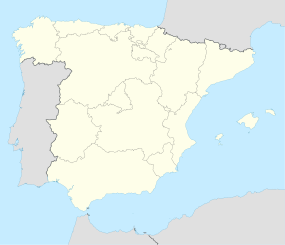Lucentum

The archaeological site is surrounded by the buildings of modern Alicante.
|
|
| Location | Alicante, Province of Alicante, Valencian Community, Spain |
|---|---|
| Coordinates | 38°21′52″N 00°26′18″W / 38.36444°N 0.43833°WCoordinates: 38°21′52″N 00°26′18″W / 38.36444°N 0.43833°W |
| Type | Settlement |
| History | |
| Founded | End of the 3rd century BC |
| Abandoned | Between the 2nd and 3rd centuries AD |
Lucentum is the name of the Roman predecessor of the city of Alicante, Spain. Particularly, it refers to the archaeological site in which the remains of this ancient settlement lie, at a place known as El Tossal de Manises, in the neighborhood of Albufereta.
The settlement in the area of Alicante was called Akra Leuka (Greek Άκρα Λευκά, white cliff or similar) by the Greeks. Another possibility is that the name is of Iberian origin and consists of two parts, lug, "water" or "sea", and cant, "steep embankment" or "cliff", giving us the meaning "the cliff near the water/sea"; this is plausible in view of the topography of the site.(See Jacques R. Pauwels, Beneath the Dust of Time: A History of the Names of Peoples and Places, London, 2009.) As a Mediterranean and Iberian commercial center, it had trading contacts with Greece, Phoenicia, the southern Iberian city of Tartessos, absorbing some of their influences. This unique mixture gave rise to a culture called Contestani by Pliny the Elder and Strabo. Especially with the ascendance of Carthage, it imported a number of Carthaginian architectural features, traces of which are still present in the ruins.
However, the majority of the city's remains bear a Roman stamp. The town was refounded as Lucentum after Publius Cornelius Scipio conquered the area in the course of the Second Punic War, and over the years it gained a thoroughly Roman character, complete with baths, forums, temples, sewers, etc.
The city enjoyed its peak between the 1st century BC and the 1st century AD, entering into a decline at the end of this period and was effectively abandoned during the 2nd and 3rd centuries. The chief cause of this decline was competition from the neighboring city of Ilici (today's Elche/Elx), which had better water and land communications and began to usurp Lucentum's trade. Eventually, the settlement was completely depopulated, the site used only for a Muslim cemetery during the 10th and 11th centuries.
...
Wikipedia

